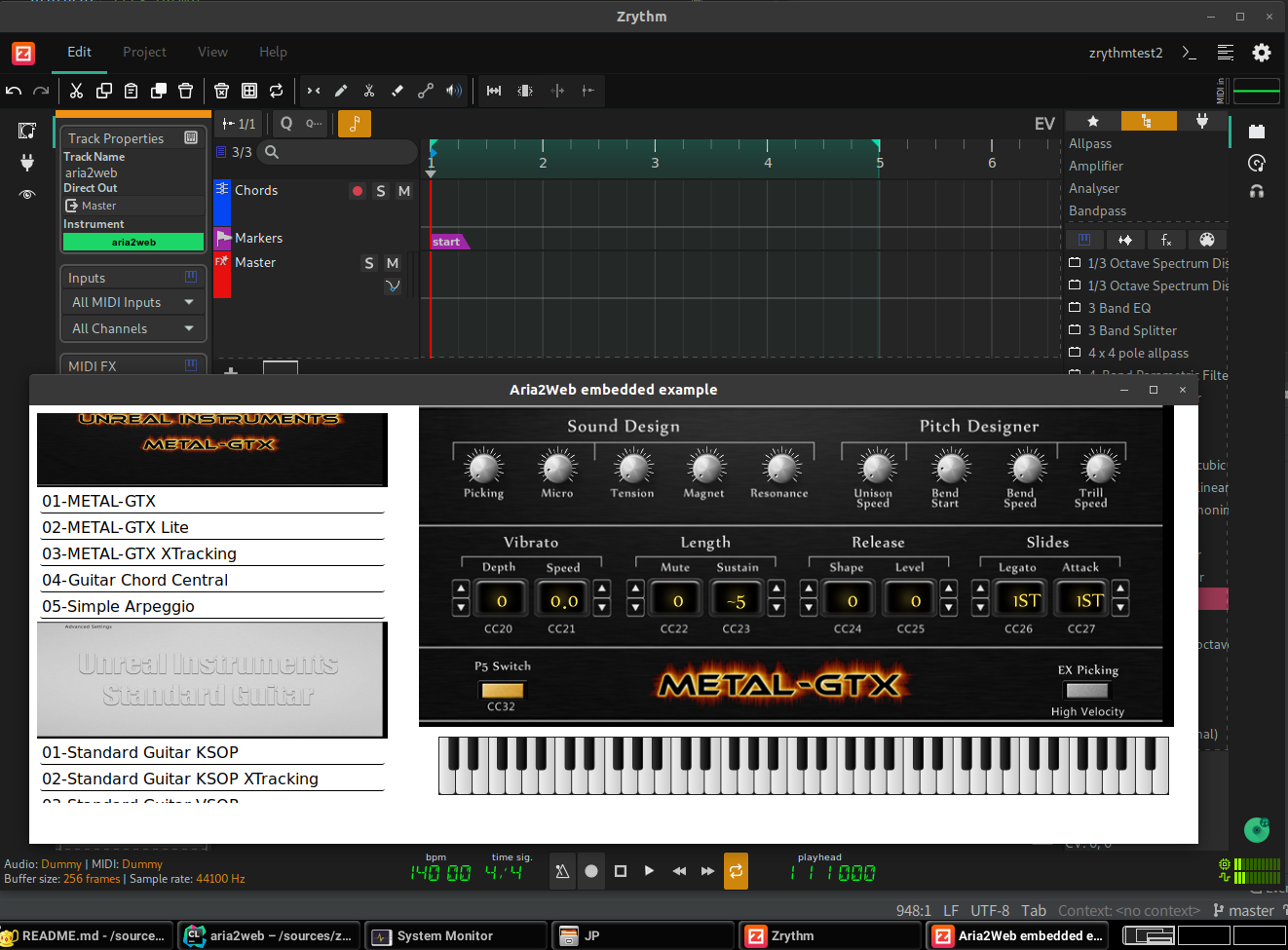Most of Kotlin and/or C/C++ projects are maintained and I'm most likely responsive. Projects for past languages are likely ignored except for pull requests.
I am reachable on Fediverse, Android Audio Devs Discord or theaudioprogrammer Discord.
- APK installer app that installs from CI (GitHub Actions) releases and build artifacts
I have a lot more AAP projects, listed on the AAP Wiki page.
- mitigate
libc++_shared.so handling in Android NDK projects.
- porting some .NET API to Kotlin (XmlReader/Writer and XLinq so far)
mugene-guide-book - book sources for MML Compiler mugene guide book (Japanese)
-
https://github.com/atsushieno/cerbero/tree/aap has some hidden gems, namely the following forks
-
https://github.com/atsushieno/android-juce-cmake - template app project for Android + JUCE + CMake
-
https://github.com/atsushieno/JUCE/tree/juce_emscripten - fork of Dreamtonics/juce_emscripten (Web MIDI support, Projucer enhancements, etc.)
Seealso: http://juce-demos.atsushieno.dev/
-
fluidsynth-midi-service-j - up to date Android project that makes use of it, including fluidsynthjna (JNAerated bindings in Java) and ktmidi (partial port of managed-midi)
-
soundfont-player-cs - Xwt-based desktop "soundfont player" that lets you choose and play soundfont programs using nfluidsynth, useful for picking up tones from a bunch of sf2/sf3 files in local directories.
-
msfa-midi-device-service - MidiDeviceService for MSFA (music-synthesizer-for-Android)





